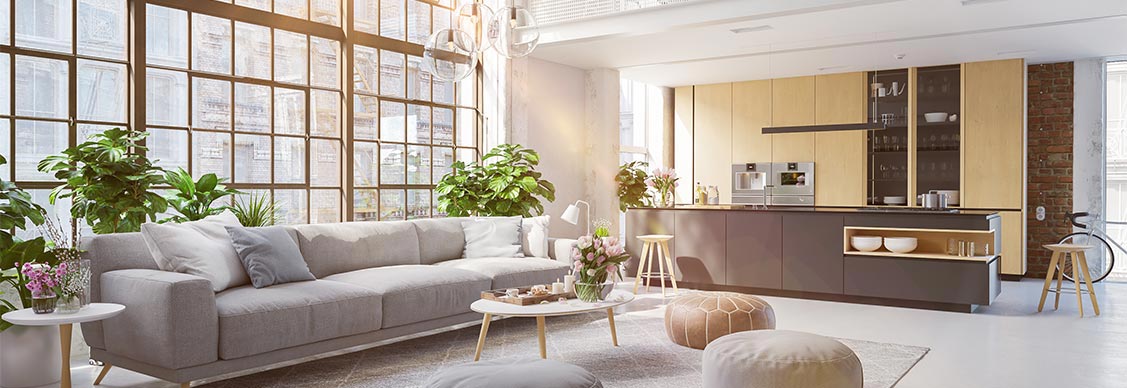Branded residences elevating luxury living
Ho Chi Minh City, Hanoi and Da Nang are the perfect choices for a branded residence model
Branded residence can be simply understood as an apartment project associated with a well-known brand and is not yet a popular product in the residential real estate market. Even worldwide, the number of branded apartments stands at only about 55,000 in more than 400 projects. Luxury branded apartments are no longer just about location or design, the services on offer within exclusive developments can make all the difference.
While luxury fashion brands such as Giorgio Armani and Karl Lagerfeld, and car manufacturers Aston Martin and Porsche, have recently joined the mix, the sector is dominated by high-end global hotel brands such as Marriott International, Hilton Worldwide and Mandarin Oriental. Globally, they control 80 percent of the branded residence market.
The United States holds about a third of the global supply of branded residences. Asia also accounts for a large proportion, especially in Thailand, Indonesia and Dubai.
The branded housing market is driven by high net worth individuals (HNWIs) with at least $1 million in investable capital. According to the World Wealth Report co-published by Merrill Lynch and Capgemini, the number of HNWIs has doubled worldwide between 2009 and 2019. HNWIs are people of the shifting class and call many cities in the world home. Wealthy, time-constrained individuals expect a dedicated, personalized service that reflects their status, enhances their lifestyle, and facilitates their daily activities. Therefore, this group of guests requires a home without the hassle of running a household but with high-class services like a hotel.
“Longstanding hotel brands are great partners for branded residences because of their reputation for delivering impeccable service as well as a distinctive, recognizable guest experience,” says Trang. Bui, Senior Director of Vietnam Market of JLL commented. “We see an increasing demand for residential services due to the need to represent the living standard, which has significantly increased the appeal of branded residences to anyone considering good interior design and service.”
Looking for more insights? Never miss an update.
The latest news, insights and opportunities from global commercial real estate markets straight to your inbox.
So why not hotel? There are very few people who feel that staying in a hotel feels as good as home, most people want to own a place where they belong to. The cost of staying at a standard hotel will eventually increase, even for loyal customers. In contrast, a branded exclusive apartment could be an investment, especially in a time when the real estate market is constantly growing. Branded residences have the added advantage of a strong brand that can guarantee top-notch services and property management. All of that makes for a strong argument for the stability and potential of this model, even after the real estate boom has taken place.
The highlights of the branded residence model are appealing not only for buyers. Developers also benefit from the expertise, reputation and credibility of the brand when offering individual apartments. “A branded residence instils a higher level of confidence among users and buyers than an unbranded property whether they’re planning on living in it themselves or renting it out,” says Trang. “With a well-known hotel brand, such as Marriott or Hilton, customers know that they are going to get the same quality product all over the world. This equally translates into higher resale values for buyers.”
But how exactly do branded residence projects work? First, a large branded corporation will partner with a residential developer and allow the use of their brand name in the project. Most of the brand conglomerates will be in the hospitality industry. However, any reputable developer can license their brand in this way, especially if the brand comes from the high-end or luxury segment, but they will face challenges in developing standards-compliant services. In contrast, prestigious hotel groups already have valuable infrastructure and experience that they can apply after the completion of the project. The developer will then offer the apartments to buyers who will pay hotel service fees. The new owners can apparently also (temporarily) lease the property to themselves.
“The combination of hotel and residential creates synergies rather than conflicts of use. The local developer has much to learn from the extensive experience of global hotel operators to create the premium product that high-end buyers want. Equally, hotel operators need the local expertise,” Trang shares. In the future, we’ll see partnerships becoming more common and more comprehensive.”
Vietnam is still a relatively new market in this area, the country has a lot of untapped potential in the commercial housing market when considering economic growth and tourism indicators. Branded residences work best in vacation resorts and in major cities. I believe that Ho Chi Minh City, Hanoi and Da Nang are the perfect choices for a branded residence model.
